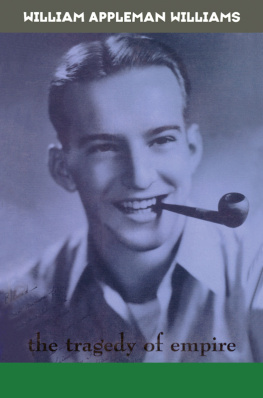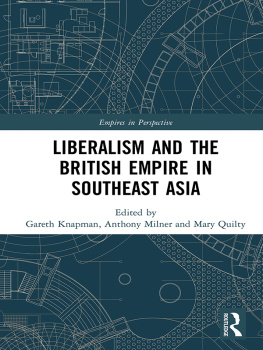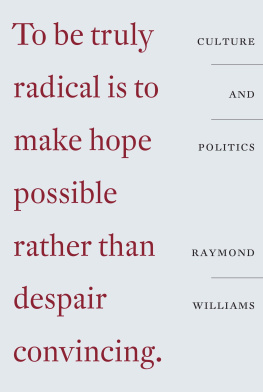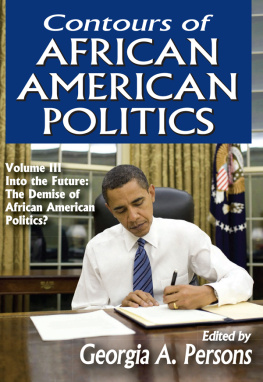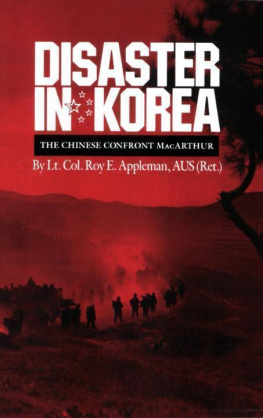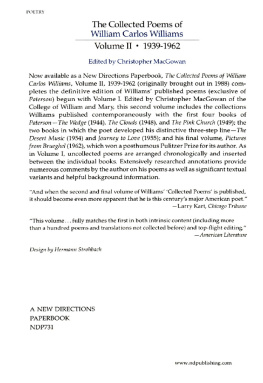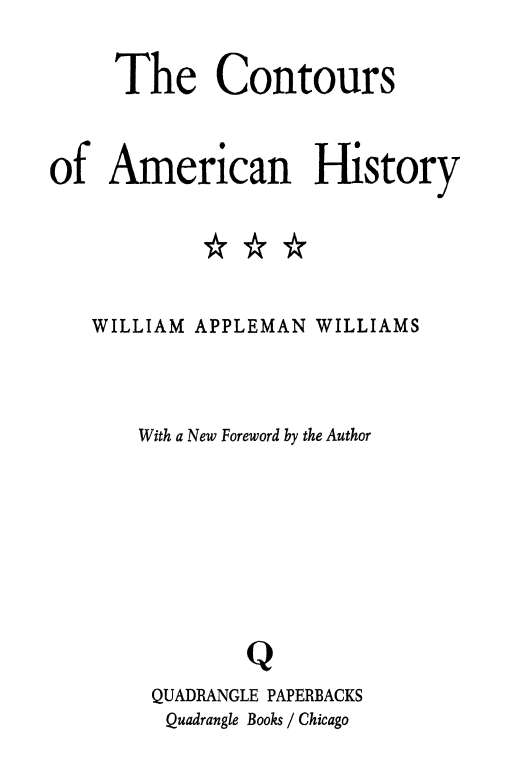In memory of my father, and for my mother;
parents who gave me by example the wisdom and
the life inherent in both meanings
of Napoleon's neglected axiom:
You commit yourself, and then you see.
THE CONTOURS OF AMERICAN HISTORY. 1961, 1966 by William Appleman Williams. This book was originally published in 1961 by the World Publishing Company, Cleveland, and is here reprinted by arrangement.
First QUADRANGLE PAPERBACK edition published 1966 by Quadrangle Books, Inc., 12 East Delaware Place, Chicago 6O611. Manufactured in the United States of America.
Foreword: Concerning Such Matters as Authors, Reviewers, Readers, and Even the Book Itself
RAYMOND CHANDLER and William Faulkner shared some of the same insights into the nature of being an historian and a writer, and they warned against reading the reviews o one's own books. Both men understood that a writer's creativity, integrity, and performance are perpetually threatened by the urge to defend or assert himself, and to be praised by his peers and superiors. And they realized that the more an author fulfilled these natural and healthy needs by satisfying his reviewers, the more he would write to and for his reviewers. The writer would thus warp his own insights and perceptions, and turn away from his true audience.
The writer and the reviewer are engaged in separate dialogues with the same protagonistthe reader. The writer's responsibility is to offer himself directly and honestly, and at the highest level of performance he can reach, to the reading public. The reviewer's obligation is to do the same in order to inform and guide the reader's dialogue with the writer. When the author and the reviewer substitute each other for the reading public, they deny their separate purposes and responsibilities.
I was impressed with the validity of this insight offered by Chandler and Faulkner long before I began to write books. I found the vast majority of formal and public exchanges between authors and reviewers to be dull, childish, petty, or irrelevant. A good many managed to display all those qualities. There were a few exciting personal duels, but neither the bluster nor the blood con
tributed to any fundamental enrichment of the reader's dialogue with the author. The tiny number of such confrontations that did help the reader involved an investment of time and energy by the author that he could have used far more creatively in a way that I will describe later.
The warning from Chandler and Faulkner was further verified when I disregarded it. I doubt if any man has either the confidence or the discipline to ignore the reviews of his first book. Certainly I did not. But in reading them I gained a fuller understanding of what Chandler and Faulkner were talking about. Some reviewers mistake the public or professional for the personal arena. There is a legitimate purpose, and potentially great value, in a serious confrontation between professionals. Ted Williams could and did teach other men how to raise their batting averages. The tough, candid, private exchanges between Maxwell Perkins and Tom Wolfe, and between F. Scott Fitzgerald and Ernest Hemingway, were fruitful. And I have read personal correspondence between historians that engaged and enlarged the minds of both men and improved their subsequent work.
But such direct personal relationships have nothing to do with reviewing, and the attempt to promote that kind of a dialogue in a review has provided many examples of trying to do a good thing in the wrong way and in the wrong place. The reviewer has the extremely difficult task of helping the reader to initiate and sustain his own creative relationship with the author. There are very few serious writers from whom we cannot learn something, even if it is sometimes negative, and the reviewer fails unless he helps engage the reader in that educational process.
Any book, however excellent, can be ostensibly destroyed by using one of two simple techniques. The reviewer can list the author's secondary or incidental judgments which are eccentric or otherwise at odds with received truth, combine these with a compilation of the slips and errors that inevitably occur during the process of publication, and present the sum total as substantive failures which demolish the author's work. The other procedure involves finding a fulcrum outside the author's conceptual system and applying the lever of routine intelligence. This offers the reader the illusion of professional destruction.
Such wrecking exercises may meet certain psychological needs of the men who undertake them, and may even provide temporary distractions for others, but they should not be confused with helping the reader understand, evaluate, and benefit from what the author has created. Hence they are particularly indefensible when performed by professionals before an audience of professionals.
Other reviewers use a book as either an excuse or an opportunity to begin their own dialogue with the reader about issues and subjects that are largelyif not totallydivorced from the author's work. The reviewer has the right, and should be encouraged, to initiate and sustain his own independent relationship with the reading public. But he only confuses, and hence misleads, the public when he does so in the guise of reviewing.
Such reviewers are so involved with their own labors that they are particularly unable to establish any significant rapport or empathy with the author and his work. Yet such simpdtico is essential to creative reviewing. This does not mean that the reviewer must praise or even accept all that the author says. (There is a great misconception, somehow, that to identify, in order to understand, is of necessity to agree or approve or acquiesce. But neither a secular logic nor a moral imperative unites the two acts. One can understand and still disagree.) Yet the reviewer has to understand the author in the fundamental sense of simpdtico if he is to speak creatively and helpfully about the author's work to the reading public. Opposition or praise that are based on no more than personal projection, preference, or pique do not help third parties reach their own conclusions.
The experience of reading the reviews of my first book, American-Russian Relations, 1781-1947, and considering them seriously, also suggested to me that authors are probably capable of writing some of the most critical and useful reviews of their own work. This may not be true of those who produce nothing beyond the one book that is proverbially said to be in every man, but it is most likely the case with a good many writers who are engaged in a sustained creative effort. Writing is an act of learning and maturation as well as a display of insight and ego, and I know many writers who have discussed their past work with an exciting combination of candor, affection, ruthlessness, and imagination.
Those who doubt this proposition might profitably read the correspondence of Malcolm Lowry, and particularly his essay replying to the negative commentary prepared for a publishing house that was considering his manuscript.*


